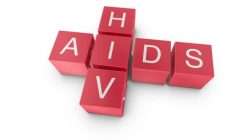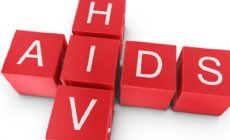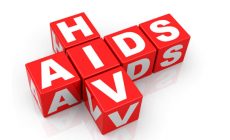HIV prevalence increasing among pregnant women – Report
- Posted on
- Comment
 The HIV prevalence rate among pregnant woman in Ghana has increased from 2.1 per cent in 2017 to 2.4 in 2018 according to the 2018 HIV Sentinel Survey (HSS) report.
The HIV prevalence rate among pregnant woman in Ghana has increased from 2.1 per cent in 2017 to 2.4 in 2018 according to the 2018 HIV Sentinel Survey (HSS) report.
Similarly, the national HIV prevalence rate hit 1.69 in 2018 from 1.67 in 2017 with about 20,000 new infections recorded last year.
Dr Stephen Ayisi-Addo, Programmes Manager for the National AIDS Control Programme (NACP) who presented the results of the survey in Accra on Tuesday said the 2018 HSS witnessed rural HIV prevalence to be catching up with urban prevalence.
The National HSS is a cross-sectional survey targeting pregnant women attending selected antenatal care clinics in Ghana and has over the years been used as the primary data for national HIV prevalence and AIDs estimates.
Dr Ayisi-Addo explained that the HIV infection trends had shot up within the Greater Accra, and Western Regions recording the highest prevalence rate of 3.1 per cent and the Northern Region recording the lowest prevalence of 0.6 per cent.
He said the increase in HIV prevalence among pregnant women was a call on the nation to double efforts in the control and prevention of HIV.
He attributed the trends to the low focus on HIV prevention interventions, saying recent efforts in prevention and social advocacy had declined due to a drop-in funding for that area whilst a lot of the money for HIV control invested in treatment had to be complemented with general prevent education.
Commenting the infection rates among young people, which was 1.5 per cent, Dr Ayisi-Addo, noted that the rate was a proxy for new infections as the nation had come through a cycle, where a lot of young people were not using condoms, which was a cause for worry.
He also observed that HIV infection among STI clients was higher in women as compared to men, with an increase in infection rates from the previous 6.3 to 9.2 per cent in 2017 and 2018 respectively.
Dr Ayisi-Addo noted that HIV control measures were now limited to the hospitals to the neglect of consistent education in communities, a situation, which could jeopardise successes attained.
The National Aids Control Programme he said was poised to engage faith-based organisations, institutions and the media to contribute to the prevention of HIV and AIDS as part of their corporate social responsibility. Dr Anthony Nsiah –Asare, Director-General of the Ghana Health Service advised men to adopt positive health seeking behaviours and endeavour to check their HIV status.
He said the NACP would soon establish a fund to address the financial challenges associated with the control and prevention of HIV and AIDS.
-GNA










 (Selorm) |
(Selorm) |  (Nana Kwesi)
(Nana Kwesi)